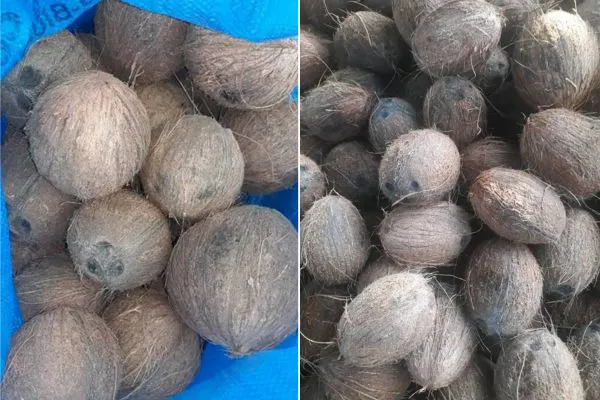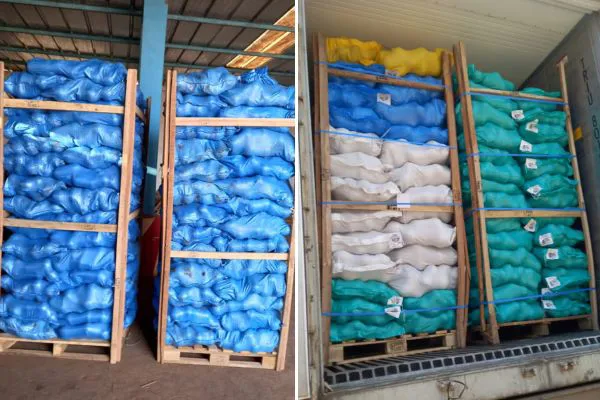Côte d'Ivoire is a major coconut-exporting country, by African standards, but the coconut industry has been suffering lately from climate change.
 "Ivoirian production accounts for 95% of African coconut exports. Our coconut is very appreciated in Europe, especially because it's organic production, the fact that we have hybrid varieties with bigger sizes, and thanks to our geographical proximity to Europe, compared to Asia," explains Stéphane Djédji, manager of Bethlehem commodities.
"Ivoirian production accounts for 95% of African coconut exports. Our coconut is very appreciated in Europe, especially because it's organic production, the fact that we have hybrid varieties with bigger sizes, and thanks to our geographical proximity to Europe, compared to Asia," explains Stéphane Djédji, manager of Bethlehem commodities.
We stand out with large calibers. In the hybrid varieties, of round shape, we have calibers that go up to 1 kg per fruit; and in the GOA variety ("Grand Ouest Africain"), of oval shape, the calibers reach 500g."
Côte d'Ivoire also benefits from a shorter transit time to Europe than the world's other coconut exporters: "Several shipping companies have weekly lines between Côte d'Ivoire and Western Europe, with a transit time of only 11 days," explains Stéphane.
However, coconut cultivation has recently been impacted by climate change: "Rainfall is becoming scarce, which reduces the yield". On top of that, "the impact of the war in Eastern Europe has cut off Ivoirian exporters from an important market, both in Russia and Ukraine," according to Stéphane.

The demand for the Ivoirian coconut comes mainly from Europe, and currently mainly the Netherlands, Italy, and France, explains Stéphane "These three countries account for the majority of exported volumes, especially the Netherlands which buys throughout the year. Italy on the other hand has a seasonal demand, from May to August, and France also with orders from October to December."
We are trying to approach the Middle East market, where prices are better than in Europe. There are good opportunities for collaboration.

At the level of the prices of Ivorian coconuts, there is no change compared to last season, assures Stéphane. The producer concludes, "We exploit an area of 200 ha in the southwest of the Ivory Coast, export more than 300 tons of our production to Europe, and sell 100 tons to the oil industry locally. Our certifications and smooth logistics enable us to sell in most international markets"
For more information:
Stéphane Djédji
Bethlehem Commodities
Tel: +225 05 05 89 91 62
Email: b.commoditieslimited@gmail.com
